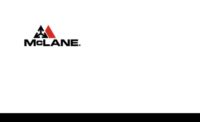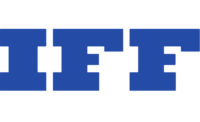PepsiCo Spotlighting Healthy Offerings
PepsiCo plans a new campaign to promote its lineup of healthier foods and drinks, putting the company on the offensive in dealing with the nation's growing worries about obesity.
PepsiCo, like Coca-Cola and other businesses that get much of their sales from junk foods, is trying to decide how to handle a fast-changing marketplace in which healthy offerings are growing faster in sales than calorie-laden, fat-heavy fare.
In an announcement at PepsiCo's Frito-Lay unit headquarters in Plano, Texas, the company said it plans to label about 230 of its products with a green circle, dubbed Smart Spot, that will carry the message "Smart Choices Made Easy."
Consumers should start seeing the labels in September, with advertising to follow.
The company has studied the Smart Spot idea since November and sees it as a way to easily tell consumers which of its products offer health benefits, or at least lower calories, such as Baked Lay's chips or Diet Pepsi. The marketing effort will be used throughout PepsiCo's array of products.
"We are putting a substantial amount of money behind this," said PepsiCo chairman and chief executive Steve Reinemund. "It's not something we thought of as sort of an interesting marketing gimmick."
However, PepsiCo's approach is not without risks. The company will have to convince consumers that its new label is meaningful. PepsiCo developed its Smart Spot standards by looking at guidelines from the Food and Drug Administration (FDA) and the National Academy of Sciences.
Also, by highlighting healthy products with a special logo, PepsiCo could be casting a shadow on its other huge brands, like Pepsi-Cola, which will not carry it.
Reinemund said this downside was part of the debate, but he thinks Smart Spot will work because consumers are looking for guidance. "Our enthusiasm on this is really around a growth opportunity," he said. "When you do the right thing, it helps your business."
PepsiCo already gets about 40% of its sales revenue from products such as baked potato crisps that it considers healthy --- or at least healthier than most snacks.
While some activists have urged the government to restrict sales of some junk foods, PepsiCo thinks it can do better by emphasizing that it offers plenty of options.
Previously, the company assembled an advisory board of doctors and experts to evaluate its products.
The board includes Dr. Dean Ornish, president and director of the Preventive Medicine Research Institute in Sausalito, Calif. He said PepsiCo's focus on health will be beneficial, although it makes practical sense, too.
"There is a good business opportunity here," Ornish said.
In recent years, much of the food and beverage business has focused on defending its products from attacks. However, Brock Leach, PepsiCo's senior vice president for new growth platforms and chief innovation officer, said research shows that some PepsiCo brands --- Quaker, Dole and Tropicana --- already enjoy good reputations.
The challenge is finding a way to market those and other products in a shared way. PepsiCo had already been using an approach called "Wellward Choices" but decided it did not like the name enough to use it in widespread marketing. Thus, Smart Spot was created.
PepsiCo's approach is not being adopted throughout the food and beverage industry, however.
Coca-Cola, which has a far narrower range of products than PepsiCo, has been dealing with the obesity issue in many ways, including the formation of a new Beverage Institute for Health & Wellness to study new products. Coke has no plans to label certain of its products as healthy.
"We feel the industry is best represented by the nutrition and calorie labeling required by the FDA," said Coke spokeswoman Sonya Soutus. "This is far more useful to consumers in making informed decisions as to what they will eat and drink, versus a marketing program."
Critics also might dismiss PepsiCo's plan as self-serving, but the company is clear in saying that snagging bigger sales is a major goal.
"We know it's going to be positive," Leach said.
Looking for a reprint of this article?
From high-res PDFs to custom plaques, order your copy today!





